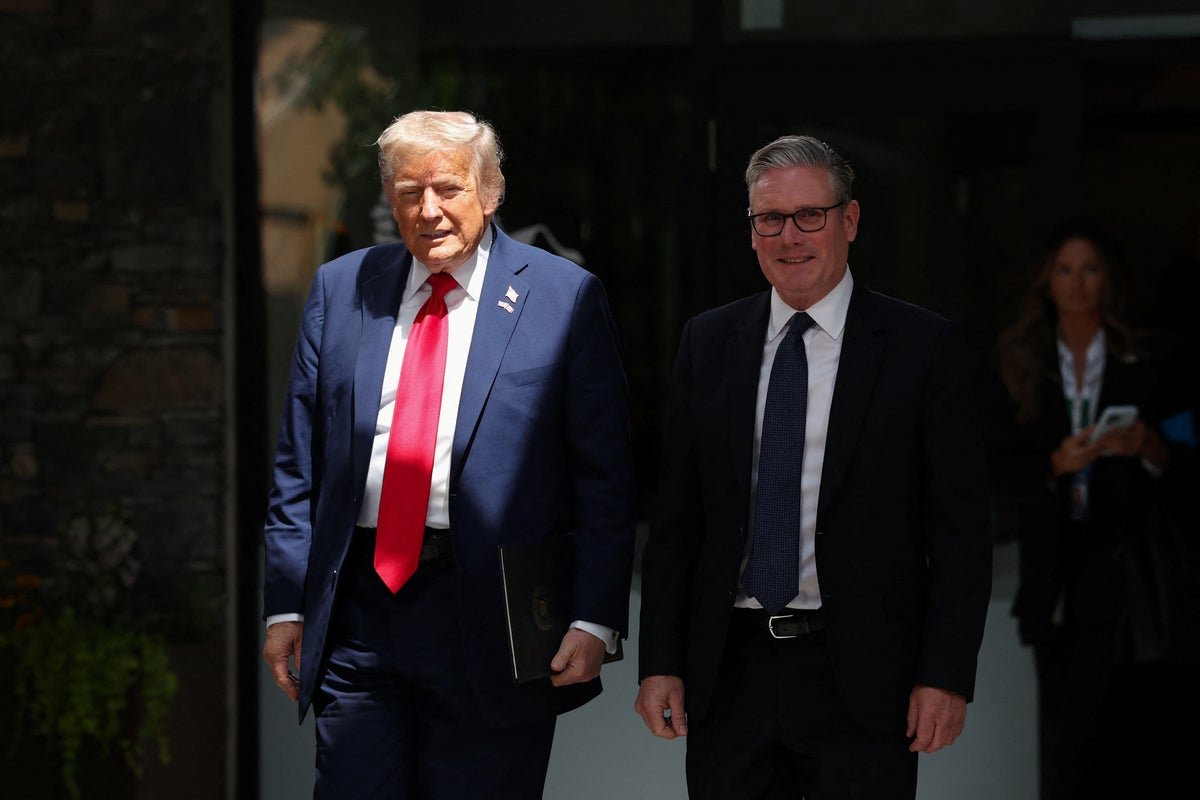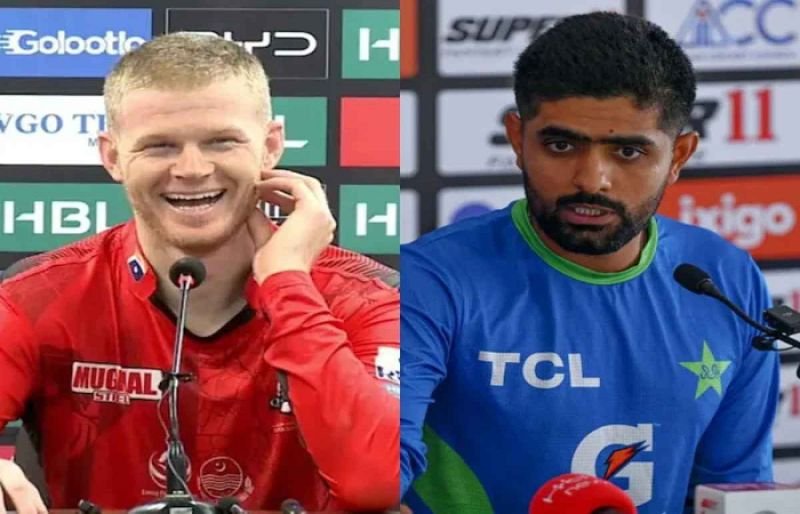Donald Trump and Sir Keir Starmer have finalised a US-UK deal that will slash trade barriers on goods from both countries, but leaves the future of tariffs on British steel up in the air.
The Prime Minister said the move marked a “very important day” for both sides as the US president announced the agreement was “done” in a joint appearance on the sidelines of the G7 summit in Canada.
The deal will grant British carmakers a reprieve by the end of June as levies drop from 25% to 10%, while the aerospace sector will face no import taxes.
But tariffs for the steel industry, which is of key economic importance to the UK, will stand at 25% for now rather than falling to zero as originally agreed. This is less than the US global rate of 50% for steel and aluminium.
The Prime Minister described the pact as a “sign of strength” in the transatlantic relationship, while Mr Trump praised Sir Keir as a “friend” who had done a “great job” securing the deal that eluded leaders before him.
Following the hastily arranged meeting, the two leaders posed for pictures outside the G7 venue with the signed documents, which the US president dropped before Sir Keir picked them up.
Mr Trump also mistakenly referred to the pact as a “trade agreement with the European Union.”
In an impromptu media spray, the US president was asked whether steel tariffs would be eliminated, to which he replied: “We’re gonna let you have that information in a little while.”
The Department for Business and Trade said the two leaders had pledged to “make progress towards 0% tariffs on core steel products as agreed”.
Asked whether Britain would be shielded from future tariffs, Mr Trump said the UK was protected “because I like them”.
“The UK is very well protected, you know why? Because I like them. That’s their ultimate protection,” he said.
The PM told the US President: “Donald, thank you very much… A really important agreement. And so this is a very good day for both of our countries, a real sign of strength.”
The terms of the deal were agreed in May, but neither Washington nor London had yet taken the necessary steps to reduce tariffs.
Reports have since suggested the US could also push for the NHS to pay more for American drugs in exchange for softened tariffs, with White House sources telling the Telegraph the service would be expected to pay higher prices.
Downing Street insisted the Government will “only ever sign trade agreements that align with the UK’s national interests” but did not rule out discussing the issue with Washington.
The Prime Minister was also insistent that a nuclear submarine deal between the UK, US and Australia, called Aukus, is “very important” to both the United States and Britain.
He said it was proceeding despite Washington launching a review into the pact, which is worth around £176 billion and believed to be aimed at countering China.
He said: “We’re proceeding with that, it’s a really important deal to both of us.
“I think the president is doing a review, we did a review when we came into government, and that makes good sense to me.”
Later on Monday, White House press secretary Karoline Leavitt announced on X that Mr Trump would be leaving the summit early due to the situation in the Middle East, following a dinner with heads of state.
“Much was accomplished, but because of what’s going on in the Middle East, President Trump will be leaving tonight after dinner with Heads of State,” she said.
Meanwhile, Sir Keir and his fellow world leaders are locked in a week of intense diplomacy amid the spiralling conflict in the Middle East and the war in Ukraine.
The Prime Minister joined Italian Premier Giorgia Meloni, French President Emmanuel Macron, Mr Carney and German Chancellor Friedrich Merz for a glass of wine and informal discussions on Sunday night.
Downing Street dismissed suggestions that the get-together had been a “Trump-handling” exercise to prove the summit against the US president’s unpredictability as leaders seek to put on a united front in the face of heightened global instability.
Splits had earlier opened up in the response to Russia, which Mr Trump suggested should not have been kicked out of the former G8 following its annexation of Crimea in 2014.
The US leader also signalled his reluctance to impose further American sanctions on Moscow despite a European push to heap more pressure on Vladimir Putin as he resists calls for an unconditional ceasefire in Ukraine.
Standing alongside Sir Keir, who had earlier said G7 allies would seek to ratchet up measures against the Kremlin, Mr Trump said sanctions were “not that easy” and would cost Washington “a tremendous amount of money”.
Asked whether Washington supported European efforts to impose further measures, he told reporters ahead of a bilateral meeting with the UK Prime Minister: “Well Europe is saying that, but they haven’t done it yet.
“Let’s see them do it first.”
Asked why he wanted to wait to impose sanctions, Mr Trump said: “Because I’m waiting to see whether or not a deal is done… and don’t forget, you know, sanctions cost us a lot of money.”
#Trump #USUK #deal #steel #tariffs #air



